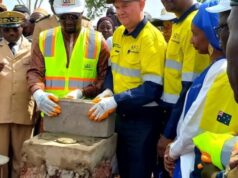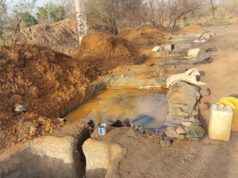- 50,000 residents regularly breathed in sulphur dioxide
- 100 students who suffered from poisoning due to poor quality
As a prelude to the celebration of World Environment Day, Chilean copper mining giant Codelco has closed its Ventanas copper smelter on 31 May 2023. The closure follows decades of toxic gas pollution and processing in the Bay of Quintero. The bay is home to 15 other companies that environmentalists are calling a “sacrifice zone”.
For the past 8 years, the Chilean government has declared that the 3 municipalities surrounding the bay of Quintero, Puchuncaví and Concón, located 160 kilometres north-west of the Chilean capital, were saturated with fine particles, inhalation of which is associated with discomfort and respiratory problems.
At an official ceremony held on 31 May 2023 in Puchuncaví, images of flames from the smelter’s furnace were shown gradually diminishing until they were completely extinguished, marking the closure of the copper smelter 59 years after it was founded.
The last mass pollution poisoning in the region took place just a week ago, affecting almost 100 students who suffered from poisoning due to poor air quality. An environmental alert is still in force.
The more than 50,000 residents of the Bay regularly breathe in sulphur dioxide, a toxic and corrosive gas which, when inhaled, causes irritation of the nose, eyes and throat. More than 60% of total sulphur dioxide emissions in the region came from the state-owned smelter.
Matías Asún, director of Greenpeace Chile, said that while the closure of Ventanas “is a very important step, we still have to see what we do with the whole industrial belt that has been generated around the smelter”.
David Boyd, the United Nations Special Rapporteur on the Environment, said during a recent visit to the region that he “smelled the toxic fumes” and “felt them in my throat”. In particular, pollution incidents in the region began to decline in 2019 when emissions from the industrial belt began to be regulated.
Synthesis by Rachid Ouédraogo
#Mines_Actu_Burkina










